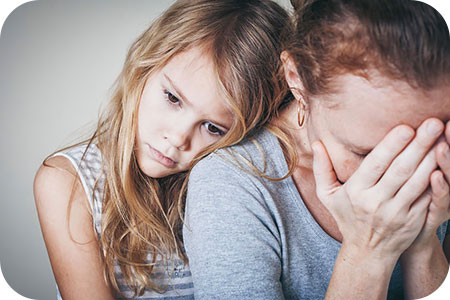Coping With The Pain Of Loss And Grief
 Going through grief is a very natural response to loss. The more significant the loss, the more intense our grief will be. Grieving can result from the passing of a loved one, losing a job, divorce, loss of health.
Going through grief is a very natural response to loss. The more significant the loss, the more intense our grief will be. Grieving can result from the passing of a loved one, losing a job, divorce, loss of health.
Coping with loss can be overwhelming. We usually go through all kinds of difficult and very unexpected emotions – from shock to anger to disbelief. Sometimes we also feel guilty that maybe there could have been more one should have done. And then there is the sadness, which is hard to even put into words.
The pain of grief and bereavement can, and often does, also disrupt our physical health, making it very difficult to sleep, eat and function normally. It is very hard to think straight at such a time, but these are normal reactions to significant loss.
There are no right or wrong ways to grieve, but there are healthy ways that you can learn to cope with the pain. In time this will help ease the sadness and help one come to terms with loss, find new meaning, and move on with life.
If you need, or want to cry, do it! Crying is a normal response to sadness. And feeling sad, frightened, or lonely, is a normal reaction to loss. Crying doesn’t mean that your weak, and you do not need to put on a brave front for the sake of your family and friends. Showing your true feelings can help them too.
Grief is like the ocean; it comes on waves ebbing and flowing. Sometimes the water is calm, and sometimes it is overwhelming. All we can do is learn to swim ~ Vicki Harrison
For true healing you need to face your grief, and deal with it as best as you can. Some of the stages of grief that we tend to go through, include:
Denial – Not being able to believe what happened.
Anger – Why did this happen? Did I do something wrong?
Regret – Why didn’t I do more, could I have done more?
Bargaining– If only I can change this, or make it go away?
Depression – Feeling despondent and sad.
Acceptance – To finally be at peace with what happened.
If you ever experience any of these emotions following a loss, you will find that reactions are natural through this process. Some people resolve grief without going through any of these stages, but if you do go through this, don’t worry about what you should be feeling, or what your supposed to be doing.
The risk of love is loss, and the price of loss is grief – But the pain of grief is only a shadow when compared with the pain of never risking love ~ Hilary Stanton Zunin
Turn to your family and friends. This is the time to lean on the people who care about you. Draw them close, spend time together. So often people want to help, but they don’t know how. Just tell them what you need, whether it is a shoulder to cry on, or to help with funeral arrangements, or to just hang out with you.
Draw comfort from your faith or spiritual activities that are important and meaningful to you, such as praying, going to church, meditation.
When your grieving, please remember to take care of yourself, face your feelings. Trying to avoid feelings of sadness only prolongs the grieving process. Your grief is your own, and no one can tell you when it is time to move on, or to ‘get over it.’ Let yourself feel whatever you need to. It’s okay. Cherish your memories one day at a time, one step at a time. You will get there.
|
|

Leave a Reply